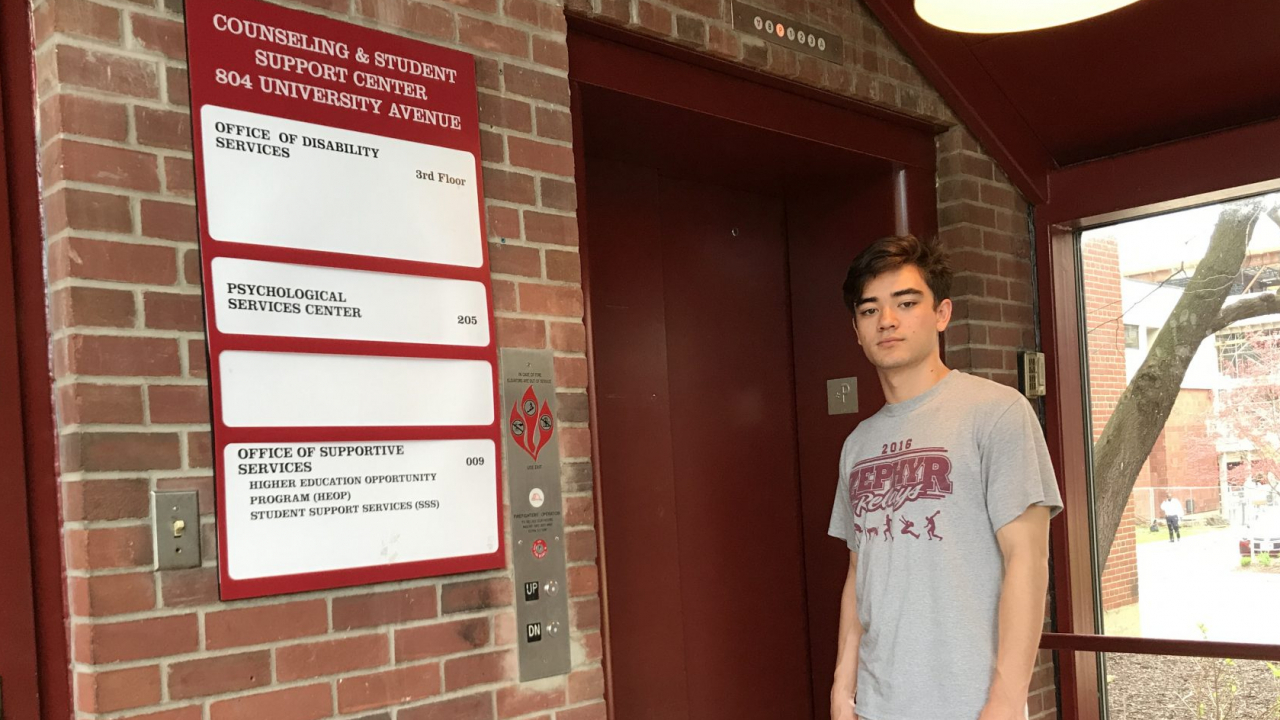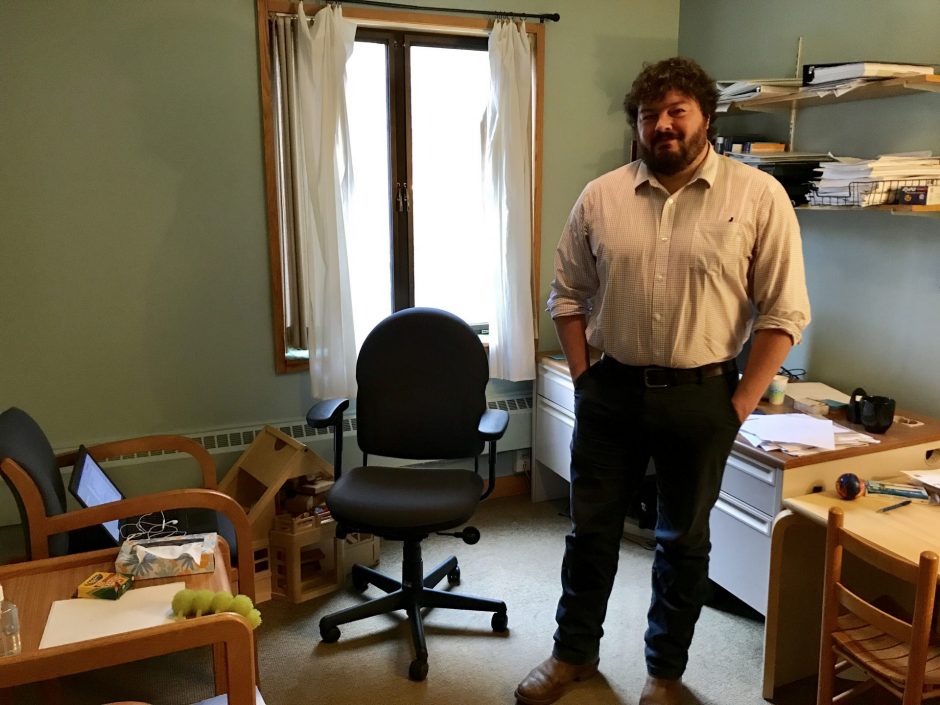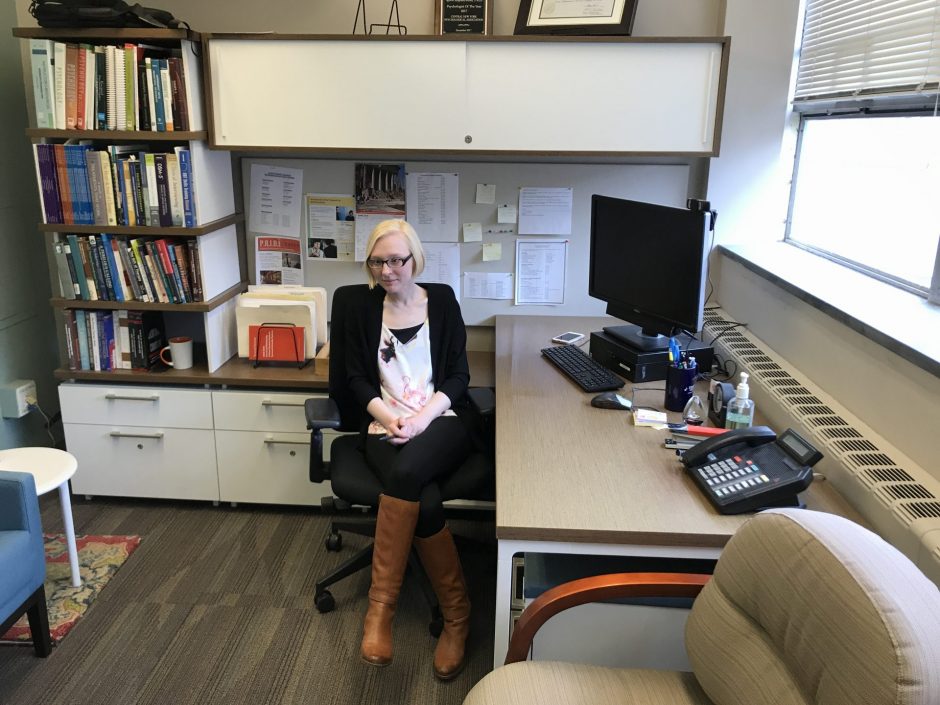
By Harrison Singer SYRACUSE, N.Y. (NCC News) – Mental illness has become a growing widespread a concern. Many people suffer from it, but far from all receive proper treatment. In the United States, about one in every five people struggle with poor mental health, according to the National Alliance on Mental Illness. Furthermore, only 44 percent of adults with diagnosable mental health disorders actually receive treatment. For children, that number is below 20 percent, according to the US Department of Health and Human Services.
In the city of Syracuse, collaborative studies show that about five percent more people per capita suffer from poor mental health than the national average. In response, legislation efforts have been made to help bring that number down.
In his very first passed budget, Mayor Ben Walsh included $1 million in mental health support for Syracuse City School District students. Shortly after, New York Governor Andrew Cuomo allocated $2.3 million in funding for Central New York schools to help support students’ mental health and general well-being. However, beyond efforts in schools, the New York State Office of Mental Health also issued a $3.5 million federal grant to launch a new anti-suicide initiative in Onondaga County.
Dr. Devin McGuier of the SUNY Upstate Medical University Department of Psychiatry believes efforts like these help change the way mental illness is often perceived.
“I think they can sort of remove stigma. Whenever we put attention on things like that, it can kind of bring things to light, and make people more willing to say, yeah, I’m having these thoughts and I’m worried about this, and have a better idea of how to get help,” says McGuier.
However, McGuier understands that many people who do need help often have trouble gaining access to proper treatment – a main reason for the increased funding and support for mental health. For this problem, McGuier attributes several reasons.
“It can be a financial burden. Even outside of just paying for sessions, things like transportation, lost work time. If you’re a family that’s not making a lot of money, I think that’s a big sacrifice,” says McGuier. “I also think there’s still stigma about mental health. People have no problem going to the doctor for a check-up, but coming in to talk to somebody about those feelings or behaviors still can be a little bit taboo,” he adds.
McGuier also blames a lack of available mental health clinics for people seeking treatment – a problem the city has worked to resolve.

In light of the $3.5 granted by the Office of Mental Health, health clinics of all kinds in the city of Syracuse have begun screening patients for suicide risk. Additionally, a new treatment program developed in Switzerland has been introduced in certain places. Formally named Attempted Suicide Short Intervention Program (ASSIP), studies show that the program has reduced repeat suicide attempts by approximately 80 percent. One of the its main focuses is patient trauma, which Dr. Afton Kapuscinski believes has not received enough prior attention from psychologists.
“The field of psychology is increasingly understanding that it [trauma] has an effect on people much later in life. Childhood trauma, whether it’s physical abuse, or the death of parent or a car accident, any of those things can really leave marks on people that effect how they relate to others, and how they relate to themselves,” says Kapuscinski.
As director of the Syracuse University Psychological Services Center, Kapuscinski treats a number of patients battling common mental health conditions such as, anxiety, depression, OCD , eating disorder problems as well as others. She says many people are initially reluctant to seek help, but recommends they don’t hesitate to do so.
“People can have an idea of what’s going on with information on the internet, but on the other hand, people come in because they’re stuck and they’re not sure what to do. There’s often as many questions for clients that come in as there are answers that they think they have,” says Kapuscinski.

Carter Yanagawa has received treatment for nearly eight years after being diagnosed with clinical depression. Like many others, Yanagawa says he initially was hesitant to seek help, but after doing so, his experiences have helped clear his mind and cope with negative thoughts.
“At first, it was really something I was actively against, but I have a much better relationship with counselors and therapists now. There’s somebody in Syracuse that I see more in the winter, but it’s always there, and that in itself is helpful to know,” says Yanagawa.
All in all, Dr. McGuier feels upbeat about the progress Syracuse has made to make treatment for mental health more available, and reduce the stigma behind it. However, he still believes there is more work to be done. McGuier says new programs, resources and school counseling centers have all made support more accessible, yet still not quite accessible enough.
“I think it has become more accessible. Not accessible enough, but I think as a society, we’re starting to be a little more accepting of mental health. Policy efforts trying to increase funding for mental health certainly helps with that,” McGuier says.




